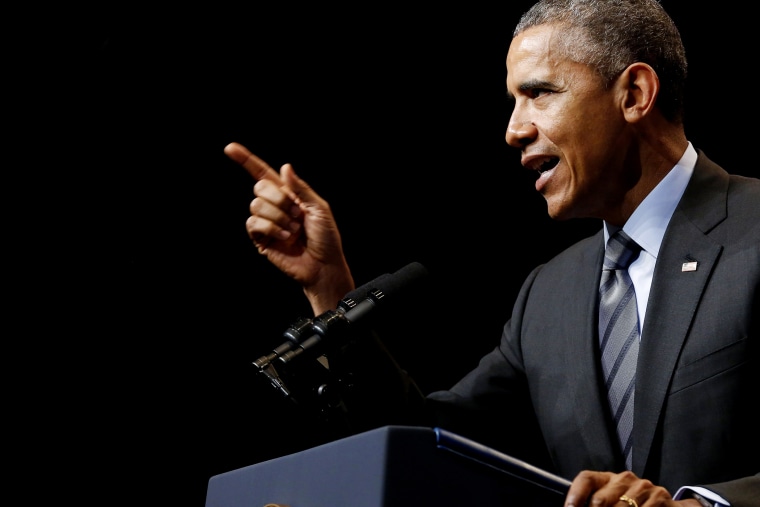Though Rudy Giuliani's recent attack on President Obama's patriotism has faded from view, the Republican offensive against the president's love of country remains surprisingly common. Presidential hopeful Mike Huckabee said last week that Obama has an "innate desire" to see America become "a weaker country."
A day later, Jeb Bush told Iowans the president "does not believe that American power is a force for good," despite reality, which points in the exact opposite direction.
But this week offers an unexpected twist in this ridiculous debate. For example, Americans saw the president travel to Selma, where he presented an impassioned vision of American patriotism, dismissing the "feeble attempts to define some of us as more American than others."
At the same time, Senate Republicans offered Obama an opportunity to turn the tables on the entire debate when they tried to sabotage American foreign policy.
President Barack Obama criticized Republican outreach to the government of Iran, saying the lawmakers were effectively aligning themselves with Iranian hardliners who oppose an international nuclear deal. "I think it's somewhat ironic to see some members of Congress wanting to make common cause with the hardliners in Iran," the president told reporters in the Oval Office on Monday. "It's an unusual coalition."
It is, indeed. When it comes to the future of U.S./Iranian relations, we're accustomed to thinking about the divisions among Americans, with GOP lawmakers going to unprecedented lengths to undermine intentional diplomatic talks with Tehran. But let's not forget that Iran, like every country on the planet, has its own political divisions.
In this case, while some Iranian officials are obviously willing to engage in multi-party talks, Iran has its own hardliners who've been eager to condemn the negotiations, insisting Americans, our allies, and our negotiating partners are not to be trusted.
Obama clearly did not question Republicans' love of country, but there was an interesting subtext to his comments yesterday: the American politicians who question his patriotism are the same people who hope to undermine U.S. foreign policy by finding common cause with Iran hardliners.
White House Press Secretary Josh Earnest, referencing the letter from 47 Senate Republicans, also told reporters yesterday, "I think it raises significant questions about the intent or the aims of the letter's authors."
The White House won't go so far as to ask which side the GOP lawmakers are on, though some have been willing to forgo subtlety. One House Democrat has begun to refer to Sen. Tom Cotton (R-Ark.), the ringleader of this week's right-wing scheme, as "Tehran Tom."
The front page of the New York Daily News, meanwhile, labeled the 47 Senate Republicans as "traitors" in this morning's edition.
In a debate over who's siding with American interests, it seems far-right American politicians are finding themselves in an unusual position: on the defensive.
